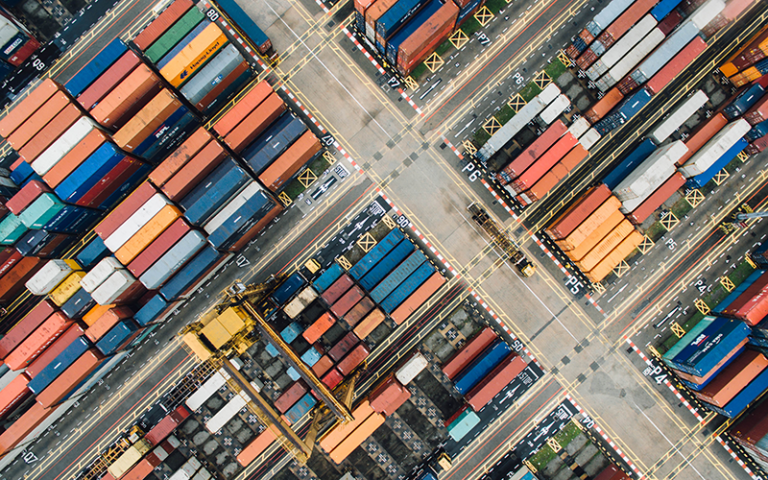Policy makers, data and supply chain stakeholders key to unlocking finance to decarbonise UK freight
9 December 2020
New report from Decarbonising UK Freight Transport Network (DUKFT) summarises findings of an event held earlier this year, highlighting key areas of action related for accelerating the decarbonisation of the UK Freight transport.

The report, ‘Financing the Decarbonisation of Freight Transport’, was published today by DUKFT following the network’s first event earlier this year.
The event sought to explore the nature of decisions investors are making today which impinge on decarbonisation, the accuracy of evidence that investors need to make decarbonisation-aligned decisions and the key stakeholders that need to use that evidence to make a meaningful impact in decarbonising the freight sector.
The findings show that while there was consensus on the need to decarbonise and a shortlist of technology and fuel options exist, policy makers needed to do more to drive the decarbonisation of freight transportation, for example through setting ambitious targets, providing adequate market signals through pricing emissions and de-risking key technologies through pilots.
In terms of the data and thresholds of accuracy for climate-aligned decision making, the panel and the discussions suggested that high accuracy and availability of information are not the barriers in decarbonising the UK’s freight sector, rather there is a need to build consensus and trust on valid approximations across the various actors of the value chain in a transparent and consistent manner.
The key stakeholders that are required to spur decarbonisation of the freight sector included those in either end of the value chain, including financiers/capital providers and cargo owners/customers, rather than the vehicle owners themselves.
Dr Nishatabbas Rehmatulla, Senior Research Associate at UCL Energy Institute, Co-Investigator and manager of the DUKFT network said:
“We know there are number of barriers common to investments in energy efficiency and specific to climate alignment which make the process of aligning assets and investment portfolios challenging in practice. This event and report show where the focus should be in order to overcome these; the role of public policy can be a crucial signal to the market. It is often assumed that high fidelity accurate data is needed for investment decision making but the event showed that reasonable and transparent approximations are equally as useful for the stakeholders in the financing community”
About the DUKFT network
Decarbonising UK Freight Transport is a network of over forty industry and academic partners funded by the UK Engineering and Physical Sciences Research Council and hosted by UCL Energy Institute.
The objective of the DUKFT Network is to ‘unleash significant investment’ into the freight sector’s decarbonisation. The Network aims to collect and distil current knowledge, as well as to identify and de-risk the key remaining research challenges that can unleash significant freight-decarbonisation targeted investment and guide enabling policy. The Network achieves its aims by fostering a close-knit community focused on unlocking and enabling the next step in UK freight transport decarbonisation by providing a rigorous and independent co-created (stakeholder and academia) knowledge and evidence base and accompanying recommendations and strategy to accelerate investment.
Links
- Read the report - ‘Financing the Decarbonisation of Freight Transport’
- DUKFT website
- Dr Nishatabbas Rehmatulla
 Close
Close

